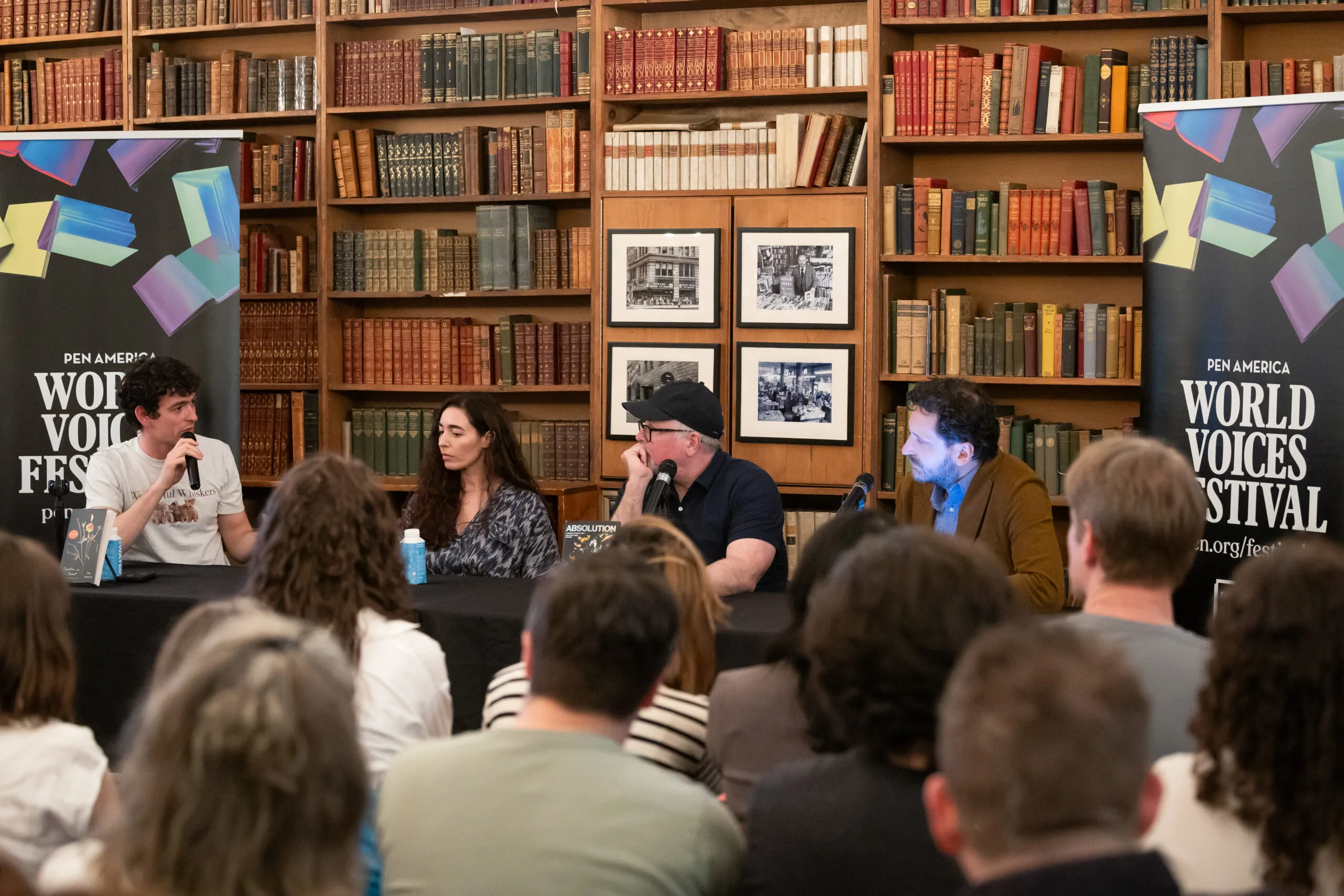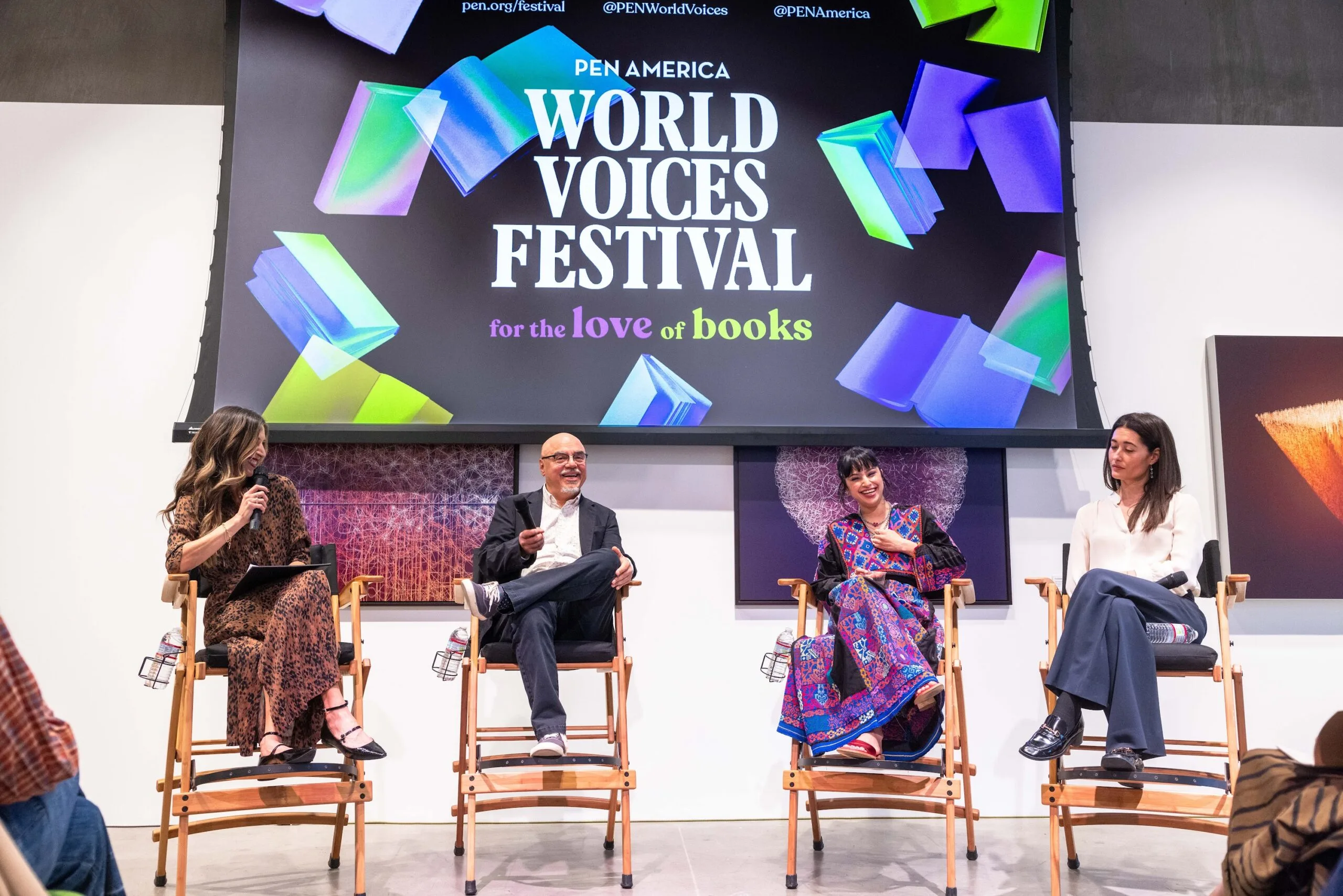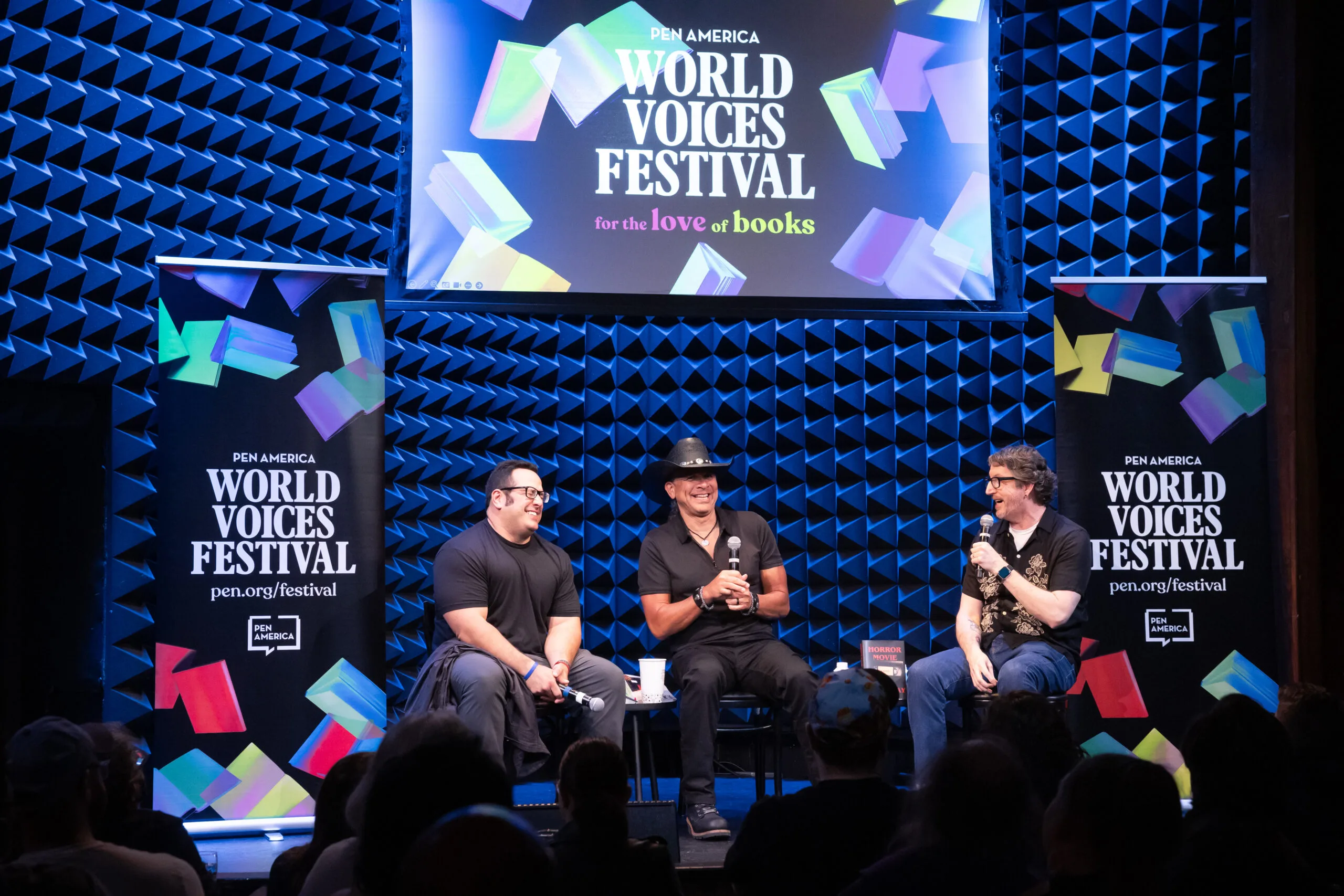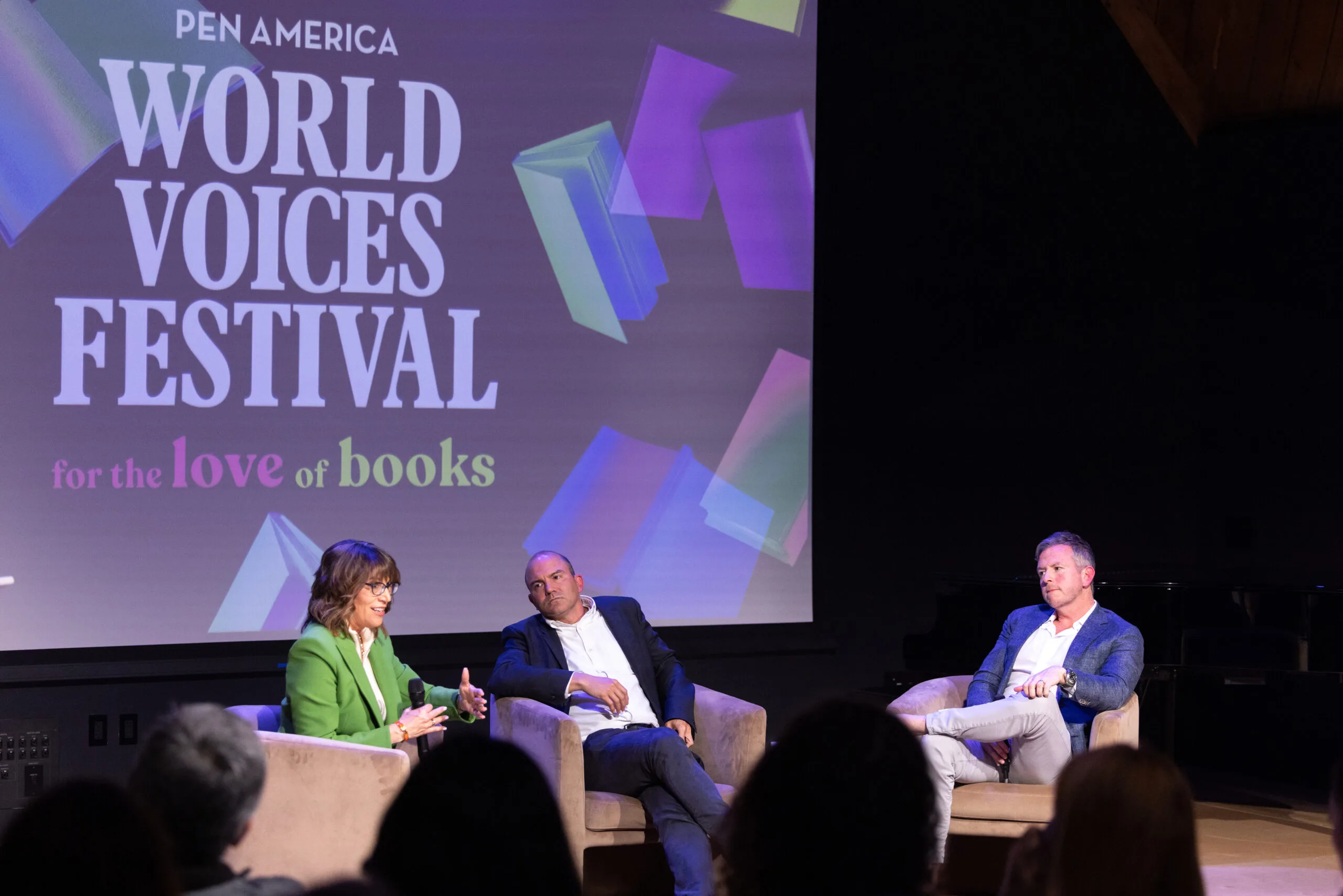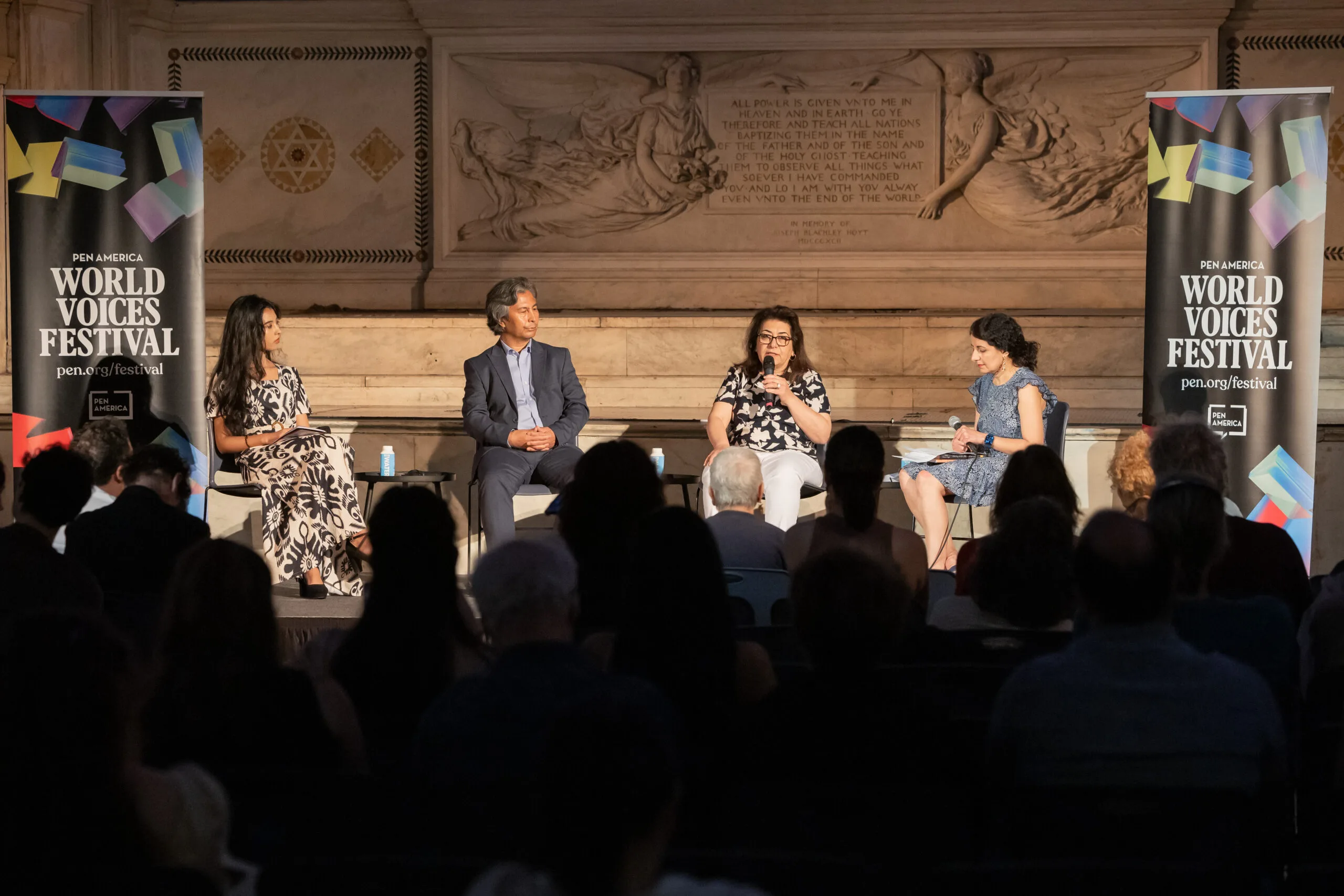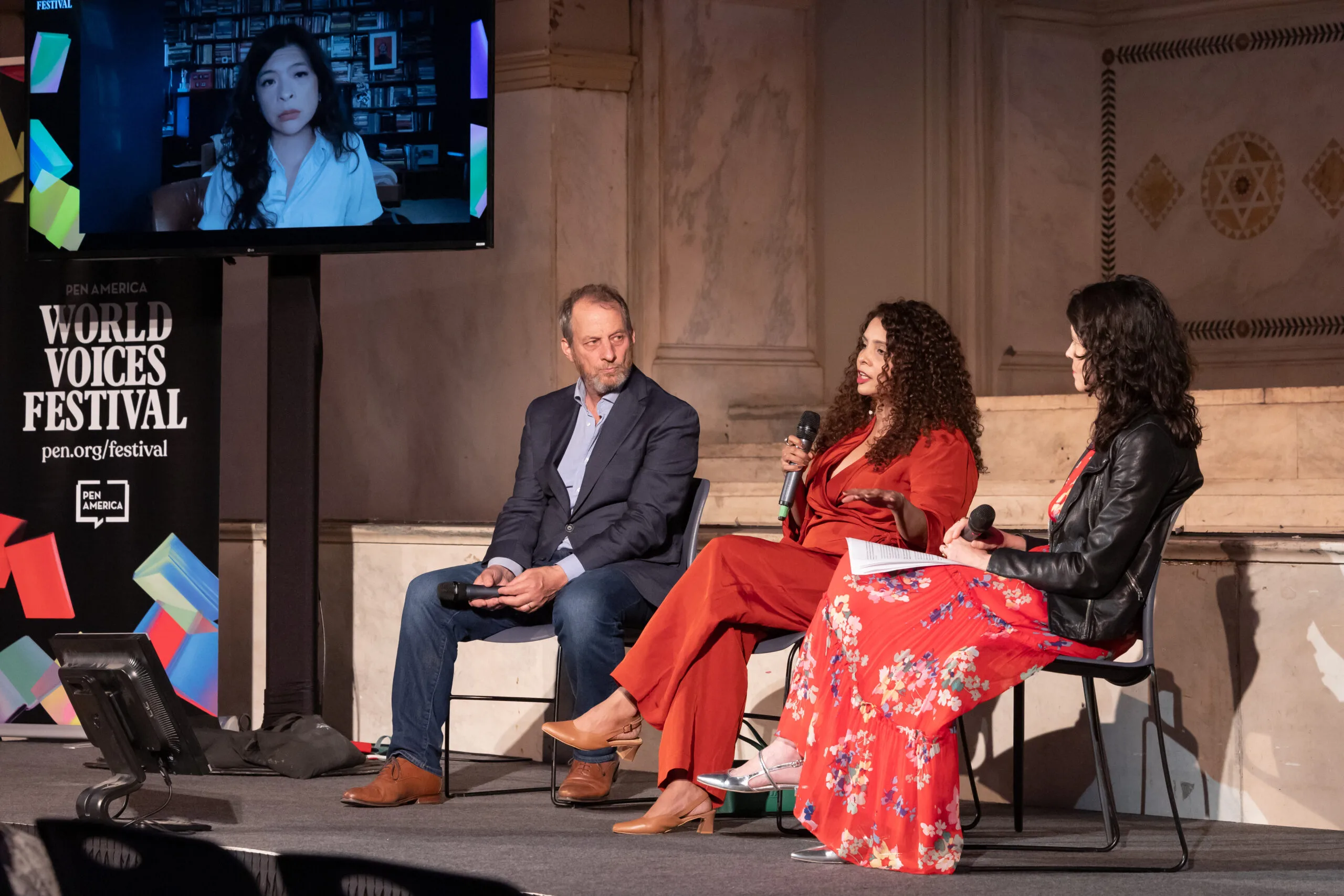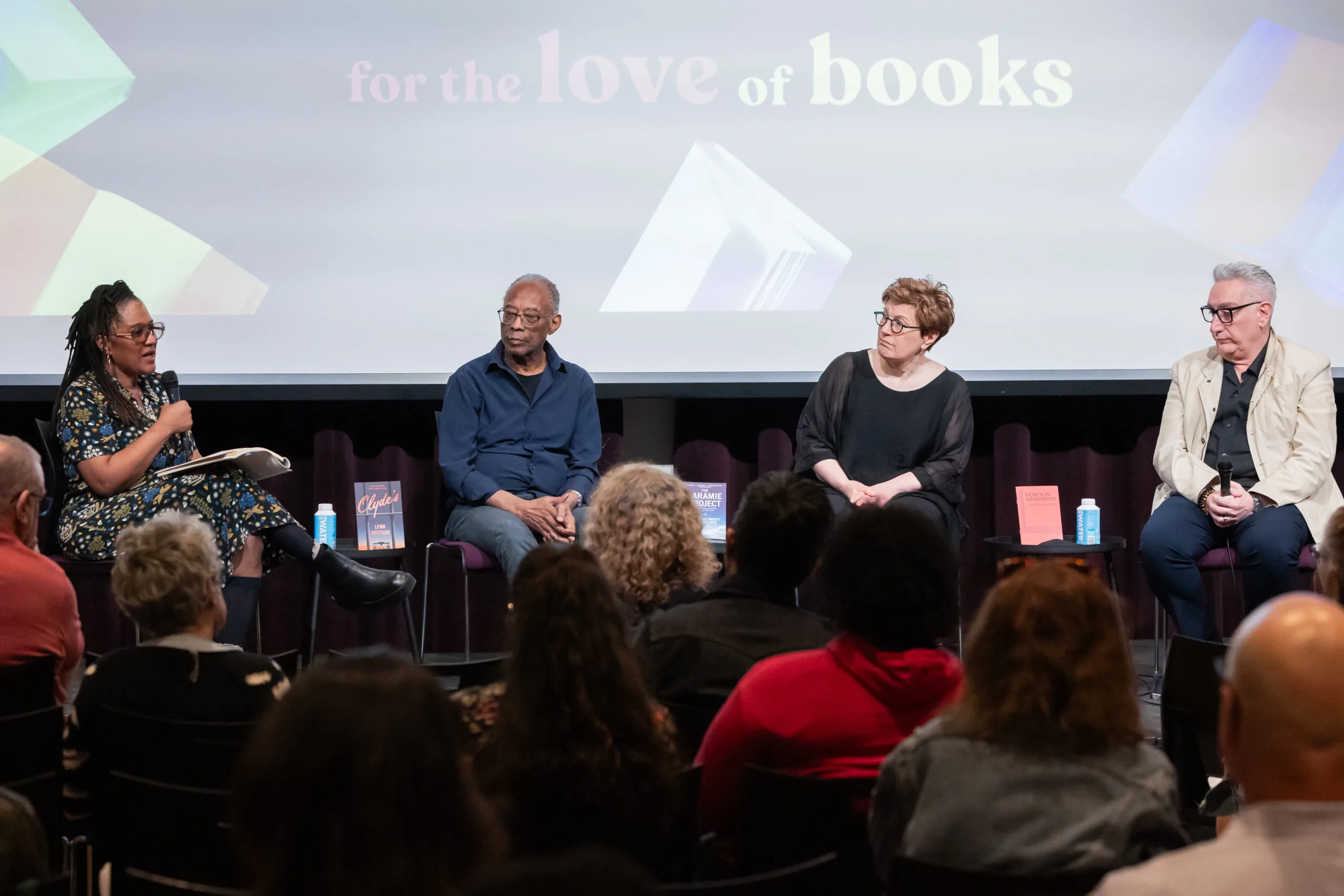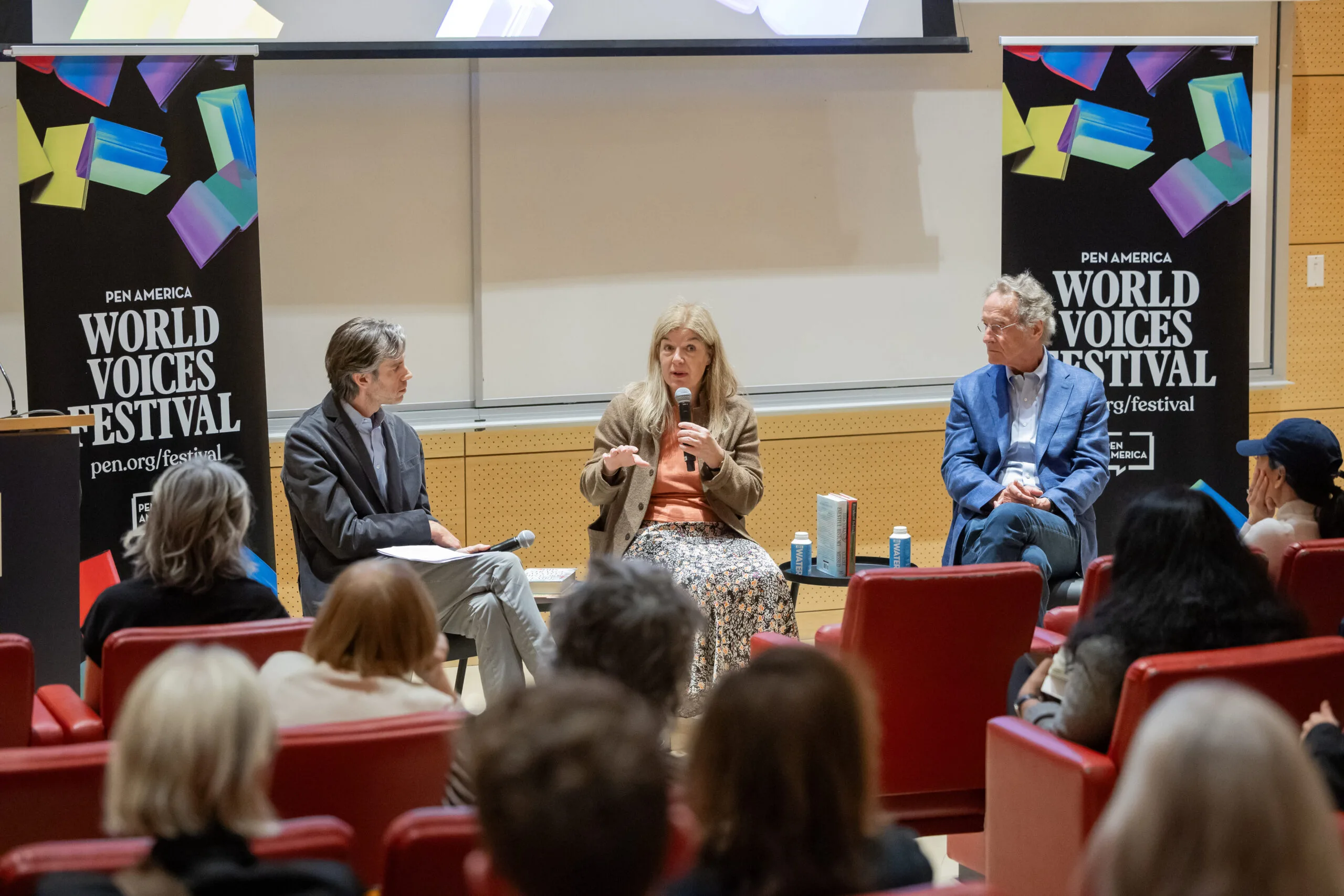
Founded to counteract the isolationism forced upon the country following 9/11, PEN America’s World Voices Festival is rooted in bringing the world together even when global events are shattering some of its parts. But 9/11 was not the first attack on humanity, and unfortunately, has not been the last. And as ever, history stands to be a repository of not just lived experiences, but also lessons that shock us but eventually lend comfort as hope and resilience of art and literature prevail to tell the tale.
Looking at history to map patterns of human movement, finding and making homeland, and generational storytelling was the theme of the panel “The Winds of History” at the 2025 World Voices Festival. German writer and academic Bernhard Schlink (The Granddaughter) shared the stage with American-Canadian writer Claire Messud (This Strange Eventful History) in a panel discussion moderated by The Wall Street Journal’s Sam Sacks at The New School. From French-Algerians to Nazi Germany and beyond, they discussed how cultural dislocation impacts the self and the role of literature in capturing this complexity.
A cultural moment’s influence on writing
Both Schlink and Messud write stories spanning generations and capturing the cultural moment in particular times—Schlink about 20th century Germany, first divided, then unified; and Messud about a French family discovering their roots in colonial Algeria over seven decades from 1940 to 2010.
Messud: “Part of what I was trying to write about in the book is these different generations and how differently people see things depending on the culture in the cultural moment in which they’re raised.”
Schlink: “Under authoritarian regimes, and even under governments turned authoritarian, you have to be careful what you say. So what you say has more meaning than other conditions of freedom, where you can say anything anytime. So be it with culture, be it with talking about politics, about the world, there was an intensity that our communications rarely have.”
Why writing historical narratives matters to them
Hailing from places where history has richly and divisively shaped the trajectories of the area and communities, Schlink and Messud both write from a point where the personal meets collective narratives.
Schlink: “I’m a German writer, and we talked about the winds of history. I would rather talk about the shadow of history. I grew up under this long shadow of the Third Reich, and it is part of what I’m thinking about and what I’m writing about. But I think as writers, we write about history as it affects individuals. … As writers we bridge the historical, the social, and the individual.”
Under authoritarian regimes, and even under governments turned authoritarian, you have to be careful what you say. So what you say has more meaning than other conditions of freedom, where you can say anything anytime.
Importance of truth in writing history
It’s easy for history to be glorified, especially while dealing with stories about fractured societies and reunification like that of East and West Germany, and dealing with broader themes of migration, assimilation, and globalization. Staying loyal to the truth becomes a necessity particularly when what it means to migrate and assimilate is changing in America at this moment.
Schlink: “I think history is the shape that we give the past, and we can do it responsibly, with respect for what actually happened, the facts, the truth—and I believe in the truth—or we can do it irresponsibly in the service of an idea or ideology or religion or political interest or whatever. But I think as authors, we are as obliged to be truthful as any historian, as any scholar.”
Messud: “I think that the idea is the degree to which the past vanishes entirely, if we don’t save it. I often think of what I’m trying to do as there are people at the top of the beach and I’m adding water in my hands, and I’m running up to the top of the beach. And the whole way I’m running, it’s running through my fingers. But if I can get just a little to the top of the beach, then that’s saving something, right? … It seems to me that it is possible to be alarmed or frightened by change … and it also seems possible to say the world is changing, and we will all learn from the changes, and that anything has a cycle, it has an evolution. If what it means to be American becomes a sort of much more multifaceted thing, maybe that’s not frightening.”
I often think of what I’m trying to do as there are people at the top of the beach and I’m adding water in my hands, and I’m running up to the top of the beach. And the whole way I’m running, it’s running through my fingers. But if I can get just a little to the top of the beach, then that’s saving something, right?
Want more?
Check out the panelists’ books:
- The Granddaughter by Berhnard Schlink
- This Strange Eventful History by Claire Messud

